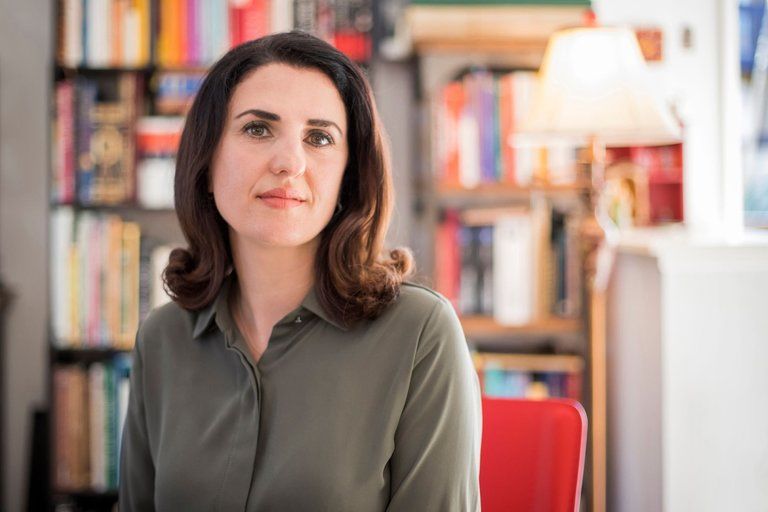
Huda Al-Marashi grew up the daughter of Iraqi Muslim immigrants who had moved to California. She was raised on a steady diet of western culture including rom com movies and romance books. On the day of her high-school graduation, she became engaged to a family friend named Hadi which she chronicles in her book First Comes Marriage: My Not-So-Typical American Love Story.
Al-Marashi entered into an arranged marriage with Hadi, her husband of now over twenty years. For many non-Muslims, the idea of an arranged marriage is sometimes seen as a forced marriage. In truth, the author says, “it’s more of an introduction.” She says that people can’t get past the idea that her and her husband’s family would arrange their marriage. “Even to us, that sounds ludicrous. We grew up together, we knew each other, and when my husband became interested in me, his family asked that he be allowed to get to know me. At any time, if I had said ‘no,’ that would have been OK.”
Another stereotype is that Muslim fathers can be overbearing in their demands while their wives take a backseat. “It’s more egalitarian than people could imagine,” notes the author. “[Muslim] women are encouraged to go to school and to study. No one is a living, walking stereotype, and that’s why we need a book. To be immersed in a family dynamic, so you see the subtleties and the nuances there.”
Al-Marashi is 41 now. She’s the mother of three children, and has been married nearly half her life to Hadi. “There are fascinating married couples, and the ups and downs [that come with all forms of married life} are nothing to fear. They can be fascinating, too.”



